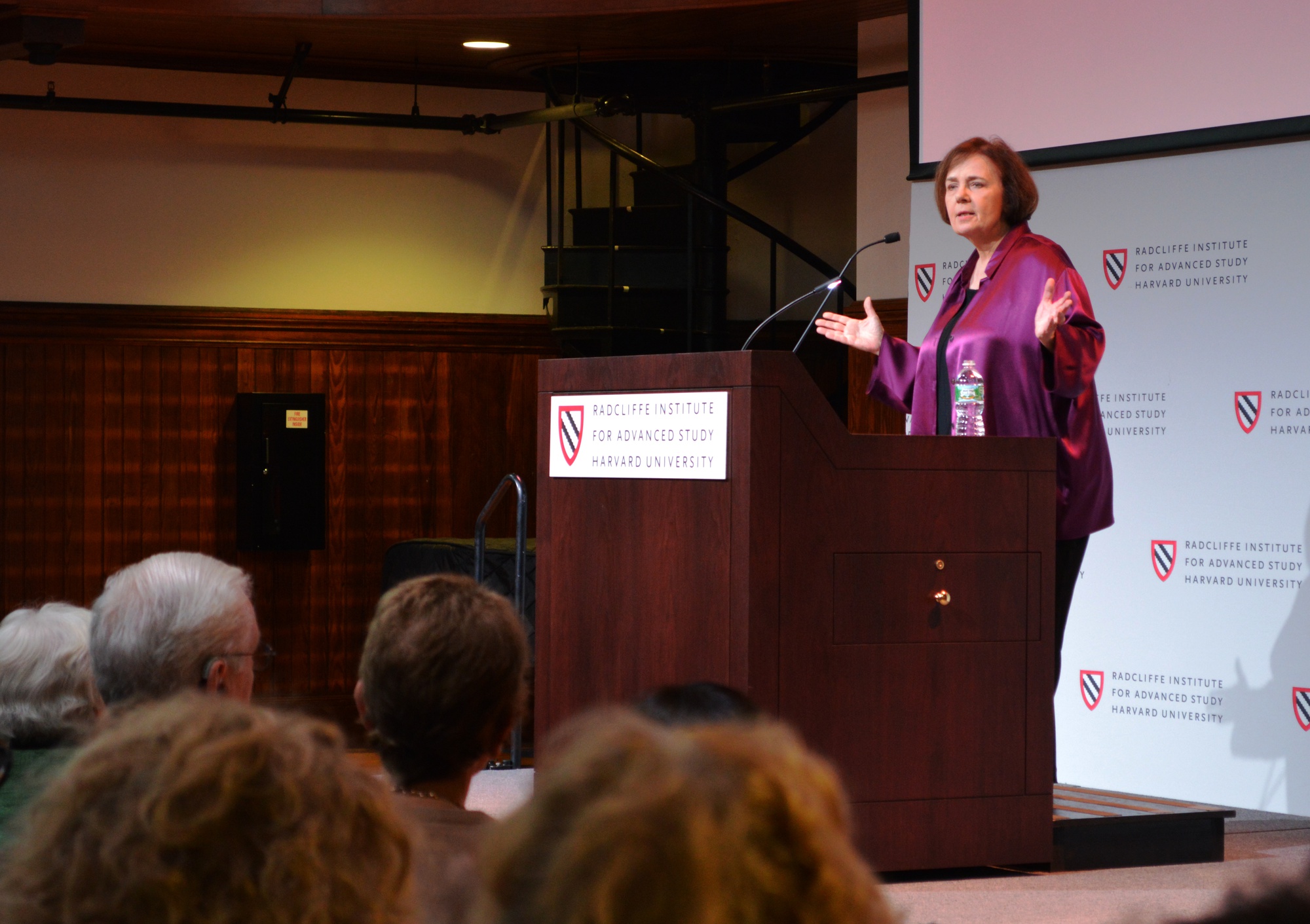
News
Cambridge Residents Slam Council Proposal to Delay Bike Lane Construction

News
‘Gender-Affirming Slay Fest’: Harvard College QSA Hosts Annual Queer Prom

News
‘Not Being Nerds’: Harvard Students Dance to Tinashe at Yardfest

News
Wrongful Death Trial Against CAMHS Employee Over 2015 Student Suicide To Begin Tuesday

News
Cornel West, Harvard Affiliates Call for University to Divest from ‘Israeli Apartheid’ at Rally
Columnist Gail Collins Discusses Shifting Views on Women in America

New York Times columnist Gail Collins argued in a lecture on Tuesday evening that the Civil Rights movement, the advent of the birth control pill in the 1960s, and the economic slump of the 1970s were crucial in shifting American society’s views on women.
The lecture, titled after her recent book “When Everything Changed,” was this year’s Maurine and Robert Rothschild Lecture, and was given before a packed audience in the Radcliffe Institute’s Knafel Center. Many of Collins’s remarks, interspersed with humor, drew laughter from the audience.
Collins said that the Civil Rights movement’s transformative effects on American society allowed other movements to follow in its wake.
“The country had been so extraordinarily unjust to such a large chunk of its population for such a prolonged period of time, [that] once [people] digested that, I think the country became very sensitive to issues of fairness,” Collins said.
Collins also said that before the advent of the birth control pill, long preparation times for professions such as law and medicine made them seem prohibitive to women.
“After birth control pills became widely available, applications by women to law schools and medical schools went through the roof,” she said.
Collins also noted that in order for families to maintain the type of lifestyle that became popular after World War II, women had to enter the workforce because one salary could no longer support that lifestyle given the tough economic conditions of the 1970s.
“It’s important because when women work, it’s a matter of course [that] they are powerful and taken seriously. In this country you are not taken seriously unless you have an economic role,” Collins said. “It was the great mistake the suffragists made that they thought if you had the vote, that’s all you needed.”
Collins also said that the general shift in America’s attitudes toward women also affected men.
“It created a world in which men and women marched forward in partnership, sharing responsibilities, both ready to jump in each other’s roles when need be,” she said.
Nancy F. Cott, who introduced Collins and serves as director of the Schlesinger Library, said that she thought Collins’s popularity and ability to educate audiences made her an excellent speaker for the event.
Alice X. Wang ’14, a co-chair of the Harvard Women’s Leadership Conference who attended the event, said that while she has examined issues of implicit discrimination against women in the workplace, she was surprised by some of the information presented by Collins.
“I didn’t realize that it was only a few decades ago that women weren’t even allowed to work in most professions,” she said. “It was amazing to hear about the transformation that happened so recently.”
Want to keep up with breaking news? Subscribe to our email newsletter.
